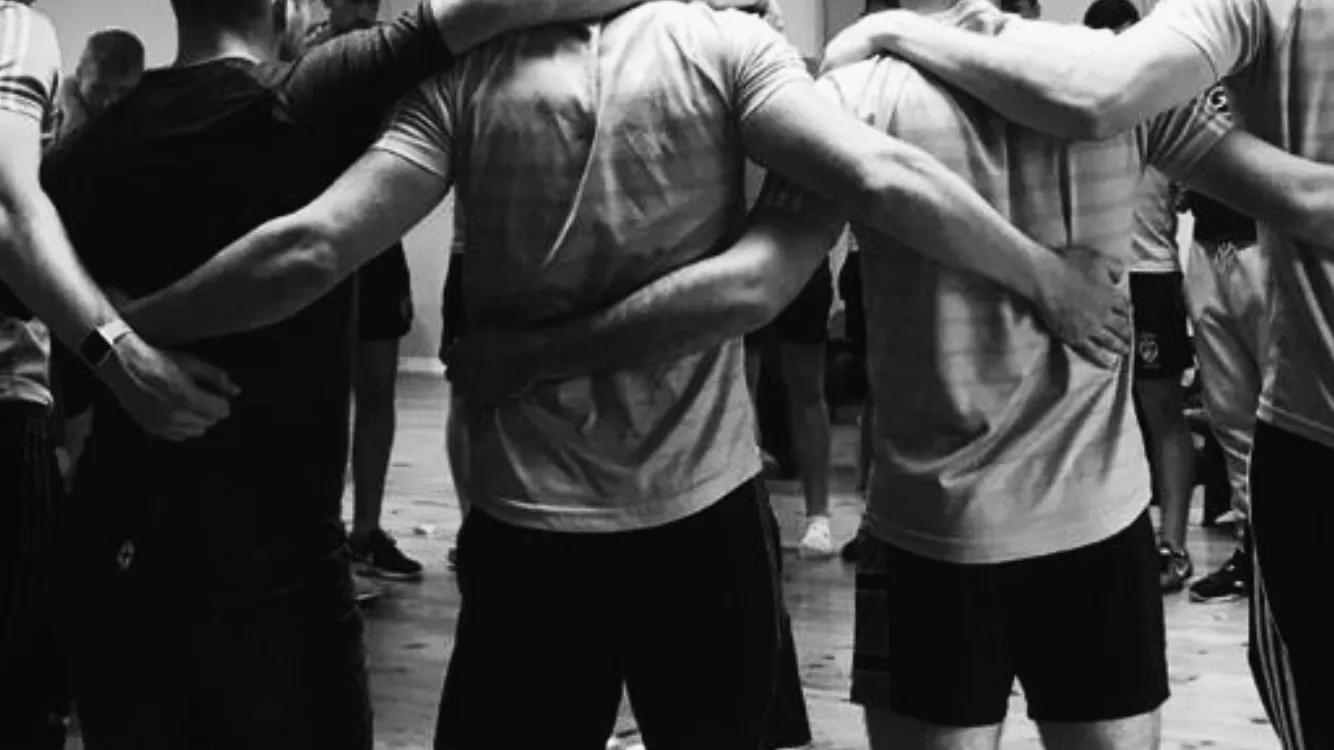Work Zone - Come on in!

Over lockdown, I met remote workers nationwide, each with vastly different professional and personal lives. Drawing a line between home and work was and is still a constant struggle. However, for our hunter-gatherer ancestors, working from home was all we ever knew. The proximity and closeness to our families are something we share. Perhaps, here lies a unique opportunity.
* It's a good time to say 1) I don't have kids 2) This isn't parenting advice 3) This has little to do with my work with teams 4) Just kicking an idea around.
Evolution of Work
For 99% of human history, we lived in tribes of up to 150 people. We were nomadic, so we located where the food was. Work was pottery and tool making, hunting prey, gathering berries, and tracing the nearest fig trees (today's KitKat chunky). Kids stayed close to their parents, experiencing work in all its shapes, textures, sounds, smells, and backdrops. Kids learned through osmosis. 'This is work'. (Osmosis is an unconscious process, where people learn through observation and imitation of the behaviors and abilities of others.)
Kids stayed close to their parents, experiencing work in all its shapes, textures, sounds, smells, and backdrops. Kids learned through osmosis - 'this is work'
In the last 1% of human history, the workplace has changed. The agricultural revolution settled us, nudging parents to work the land. In the industrial revolution, factory laborers worked 'remotely' from their families - and boom, the 9-5 was born. The shift to the information revolution saw mass migration to office blocks with boardrooms and cubicle desks.

To the Office
For 38 years, my dad worked as a financial controller with a disability services charity. Each morning he would leave home at 7 am - and return home at dinnertime. In between those times, I had no idea what he did. I used to call him a 'disabilities services man'.
When I was about 10, he needed a hand counting fundraiser moneybags in the office. I remember seeing the building for the first time; the heavy bunch of keys he used to unlock the doors. Once inside, I explored the corridors, peaked through doorways, inspected faces on the walls. His office was bigger than I had imagined. It had a big cold wooden desk with an electronic typewriter on it. His desk was full of arbitrary objects like staplers, hole punchers, paper shredders - endless fun.
It was as if the mysterious, elusive, faceless entity was finally unveiled. This was the famous 'work'.
Counting the coins was tedious. It took focus and a strict process. We made 10 pounds 'bunches', made up of 20p's, 50 pence, one pound bags. Same system for the notes. We drank tea from a big silver vat. I never knew that money smelled or could dirty one's fingers. I imagined the spectrum of characters who parted ways with their 20p's and 100-pound notes. He filled me in on what funds were used for, who his colleagues were, some of his daily tasks. Without him saying it, it was clear he cared a lot about his workplace. He cared about the people for whom the funds were raised. I admired him for that.
I got the sense from him that it was another trip to the office. For me though, there was something powerful about seeing where he spent his time; what tools he utilized; that he had another 'tribe' that didn't call him 'dad'. It was as if a faceless entity was finally unveiled. This was what 'disability service men' got up to. This was the famous 'work'.

Work / Life
Since lockdown, we have come full circle from our hunter-gatherer days. Many people's jobs are now in their nest. Kids and families are now within disruption distance from their professions. Office spaces certainly need cordoning off from roaming family members, partners, parents, pets, postmen, etc. Without these boundaries, productivity and work relationships become strained, and according to research, stress levels (to see how this can play out, see clip of two toddlers dramatically interrupting their daddy's BBC interview - worth a watch).
Maybe they will learn something new, maybe they will understand you better, maybe it will start a new conversation, or even spark an interest for life.
Come See
They say we spend on average 1/3 of our lives at work. By shutting the metaphorical door too firmly on our work lives, we may be shutting off a lot of who we are. Whether you are a trader, CEO, writer, analyst, lawyer, engineer, carpenter, therapist, artist, every job requires unique skills and temperaments. What would happen if we kept the door ajar just a little. I'm not suggesting to invite them into important meetings, or to sign off on a merger, or to write the last page of your novel. Rather, in liminal moments, as the day is winding down, or during low octane tasks - let them see, feel, smell what 'work' is for you. They may just politely decline, close the door and disappear down the corridors. Or maybe they'll learn something interesting. Perhaps it would start a new conversation or they'll get to know you better., Maybe it would spark an interest for life. Who knows.
What I do know is, I am thankful my dad invited me to hunt and gather with him many years ago, and it is tattooed in my mind to this day. As Benjamin Franklin said, "Tell me and I will forget, show me and I may remember; involve me and I will understand"
"Tell me, and I will not forget — show me and I may remember — but involve me, and I will understand."


Align & Flow



